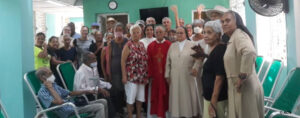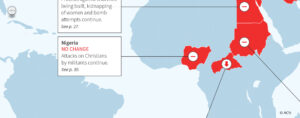The Sisters of Charity of Cardinal Sancha occupy a special place in the hearts of many Cubans who know they can count on the “Sanchinas” when they need help. The congregation was founded on the island in 1869 to help the disabled and poor children. Over time, they extended their reach to cover education, support for families, the elderly, vocational schools, and pastoral work in parishes.
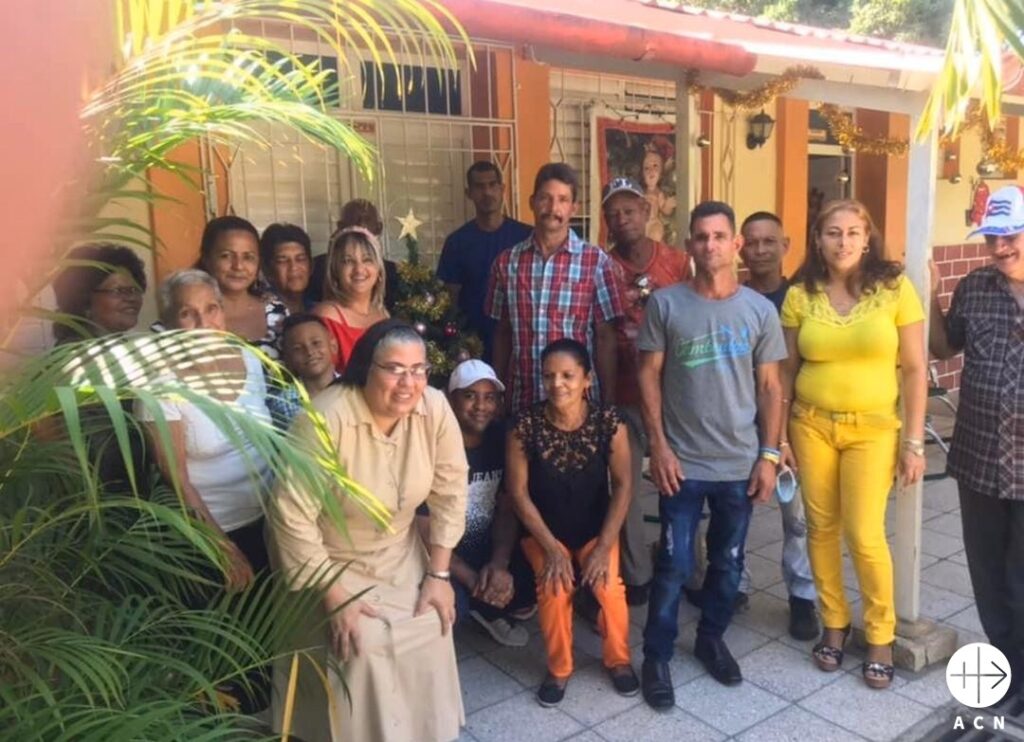
Two Sanchina sisters, Sr. Isabel and Sr. Leonida, carry out this work in the third most important city of Cuba, Camagüey. With the support of Aid to the Church in Need (ACN) they reenact the miracle of the multiplication of the loaves and the fish in the context of the terrible crisis that affects the island. In the Community of Mary Immaculate, the two sisters manage to multiply their time and resources to serve children, their families, young people, the elderly, and the sick. Their constant smiles hide a reality marked by daily struggles, but rests on a hope that relies only on the grace of God.
The city of 300,000 people is known for its picturesque World Heritage historical centre, formed by labyrinthine alleys and cobbled streets, but has been overwhelmed by an economic crisis that has left many families in a state of deep need. Skyrocketing inflation and loss of purchasing power has put even the most essential goods beyond the reach of many families, and residents can often be seen standing in long lines to buy food and medicine, sometimes returning home empty-handed.
The sisters share in the pain of mothers who cannot feed their children, of elderly people who cannot find medicine, and of the young people who see emigration as the only way out, leading to a constant exodus that threatens to drain the country of brains and muscle that it desperately needs to progress. Under such difficult circumstances, the presence of the sisters is a sign of hope for many, proving that even amidst the worst adversity, God’s love never abandons His children.
The sisters must also get by with the minimum, since the economic restrictions make it difficult to replenish stocks. Without Divine Providence and the generosity of many, their pastoral work would have to be abandoned. Sometimes they need creativity to stretch their resources to cover their most basic needs.
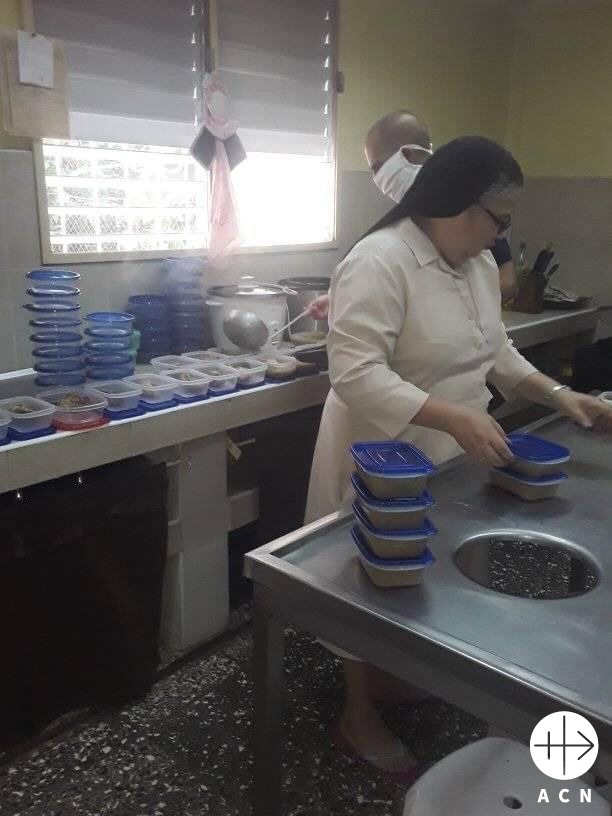
The sisters often recall the words of Pope John Paul II to priests and religious during his historic visit to the island in January 1998. “Do not lose hope in the face of the lack of material means for the mission, nor because of the scarcity of resources, which makes a large part of this people suffer. Continue to accept the Lord’s invitation to work for the Kingdom of God and His justice, for the rest will follow.” Heeding this advice, Sr. Isabel and Sr. Leonida have even begun new projects, such as the “Friends of Sancha” kindergarten where they care for 14 children from vulnerable families, between the ages of one and four, whose mothers have nobody else to care for them with when they go out to work. They also accompany young couples and the children’s grandparents, forming a community of 78 people.
Gladys works in the kindergarten and says that through her contact with the sisters, she has “learned to forgive, to love the others even more strongly, to share what I have, even if it is only very little, to feel secure because God, who is our Father, is with me and never abandons us. Today I am a person of faith, and I can say that I have life in me, because I trust in the Lord… And that is something I owe to the fact that I came into contact with the sisters,” she says.
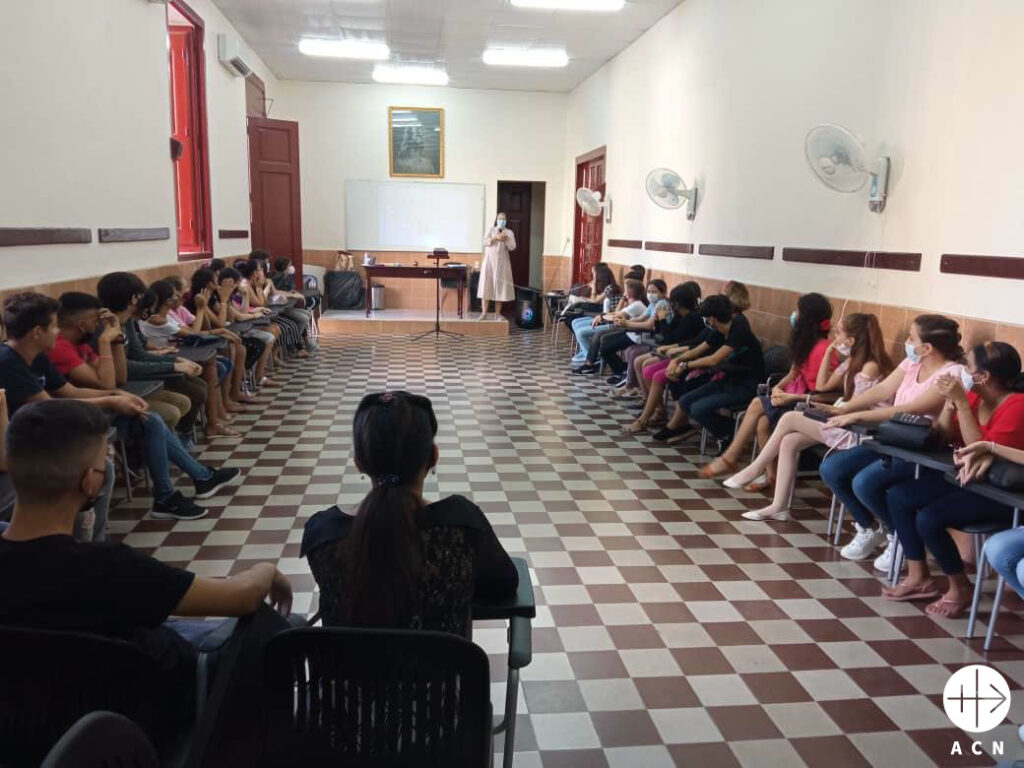
One couple explains that “the religious teach our children, Diego and Beatriz, to be independent and they manage to integrate the families,” while Roberto and Pilar, whose daughter Alaia has attended the kindergarten for seven months, credit the sisters with “helping to form one big family. This has been a big change for her, but they teach the children values, to love and respect God, to share. They have helped her to eat by herself and to be more independent, and since she began going there, she has even begun to speak a bit more.”
The sisters also serve in the local parish, where they teach handicraft courses and values as part of personal development programs. They helped to form 20 coordinators for pastoral work in the field of health, who accompany them when they visit the sick, to provide spiritual relief, food, and medication. When they manage to afford the transport costs, they also visit people in need who live further away, even trying to reach places where people don’t know God.
“They taught me handicrafts, and how to face the trials and difficulties of life with joy. Through their example, they taught us to live in faith, and to love the poor, to help without expecting anything in return. All of their work fills me with hope and love,” says Lourdes, who currently helps the sisters visiting the sick.
“I lost my husband after 27 years of marriage, and it was very difficult to be alone. The sisters have been a rock that supports me, accompanies me, counsels me and cheers me up,” Marlene explains. “They invited me to help with the mission of visiting the sick, which has made me very happy, since it encourages me to live with faith and enthusiasm,” she adds.
Alicia, who has been working alongside the sisters for a decade, says: “I am filled with joy when I visit the sick, and with them I discover a God who acts through the simple and the humble. All that I have learned through my contact with the poor and neglected is thanks to them.”
And if all of this was not already enough, the religious also provide spiritual support to ten young people and 15 teenagers, organizing regular meetings, conferences, and catechesis sessions. “With them I learned who was in that particle of bread; what a retreat is; a mission. They have been with me all through my journey of faith, guiding my steps,” Anyelis, from the youth group, explains. “The Sanchinas represent the simplicity and the traditions of Cuba’s history and show me that there is joy to be found in poverty and serving those who are more in need than us. As a young Cuban, I see that this is an important contribution to my country,” she adds. Thirteen-year-old Yénifer, meanwhile, admits that “I was going through a very difficult period, and neither my parents nor my siblings understood me. I was being rebellious, but when I started taking part in the youth groups with the sisters, I felt loved and valued. They support me and they help me. I am happy because they have encouraged me to get to know Jesus.”
Aid to the Church in Need (ACN) contributes to the support the Sisters of Charity of Cardinal Sancha in the Dioceses of Camagüey, Havana, and Santiago de Cuba, helping to strengthen the Church’s presence in the most vulnerable areas and enabling the continuation of the sisters’ ministry on the island.




